“Can I ask you something? You will know: what will be the end of all this?” I smile at the question of a driver taking us to Stepanakert despite having no mood of smiling and thousand thoughts and emotions boiling inside me. We got on Aro’s car from Yeghegnadzor but started talking only after the car entered Artsakh.
The road is visible only as much as the car can illuminate. I have never traveled within the borders of my country with such a restless heart... The lightless night in the Lachin corridor is ominous, and my gaze periodically falls on the phone screen to see how much time is left to reach Stepanakert.
“The end will be what we deserve,” I reply to Aro, looking away from the phone and trying to sound more vigorously.
Aro is from Stepanakert. Near Zanger and in the other section of the road, the car, loaded with goods, stopped twice and started only after a few attempts.
“And what if the car stops again?” I ask Aro, hoping not to receive substantive answer.
“Sister, this car is not naïve, it becomes frightened as soon as it enters Lachin and passes it very quickly,” Aro jokes, and I feel warmth after he calls me “sister”.
We talk for more than an hour – about the war, Artsakh, analyze the right and the wrong, understand each other a little or disagree, but we are clever people, we respect and do not offend each other.
Aro and his spouse were one of the 674 couples who married during “Big wedding” event in Artsakh in October of 2008. They married in Shushi. Aro has 5 children, 2 citizenships but did not leave Artsakh either during the war or is going to move to Russia now.
Approaching Shushi, my heart squeezes more “no, you can not be anyone else’s, you can only be ours,” I think and embrace Shushi in my mind to protect it from those flags, from those strangers, from all this…
“Don’t worry, they will build it and we will take it back.” It is again Aro, who does not allow me to think and again steals a smile from me…
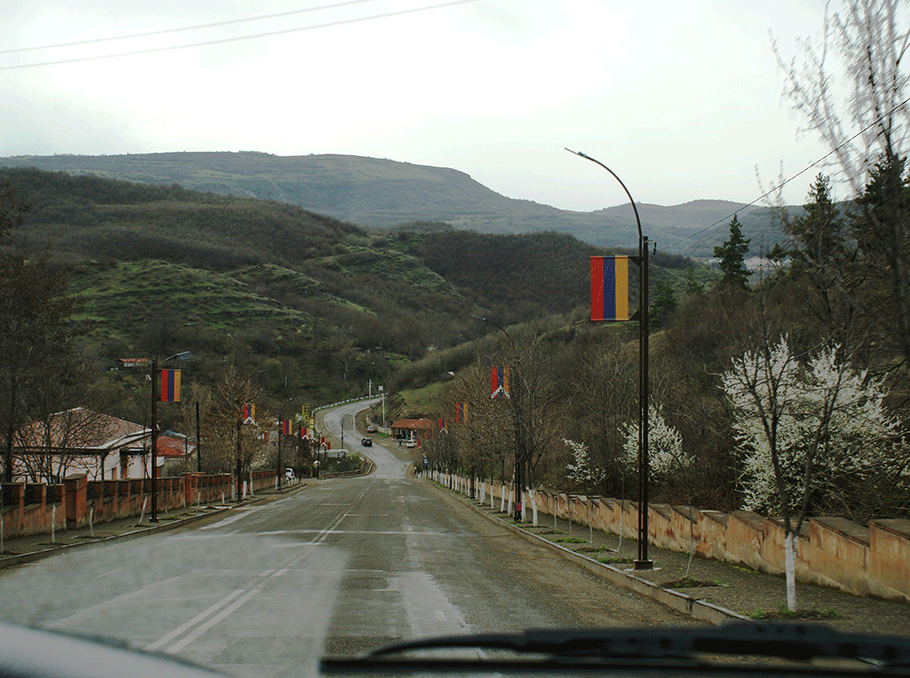
Photo: Mediamax
My friends from the “Border” NGO are waiting for me in the hotel. They reached Stepanakert in the afternoon, and the next day we are planning to visit villages that became bordering after the war, “forcing” the “Border” to start operating in Artsakh as well. They said that in the afternoon they visited the village of Hinshen in Shushi, and the road leading to the village was opened for them by the Azerbaijanis carrying out road construction works on the spot. “We have seen so many things together after the war in Artsakh, Syunik, Shurnukh, but this… you can not even imagine...”
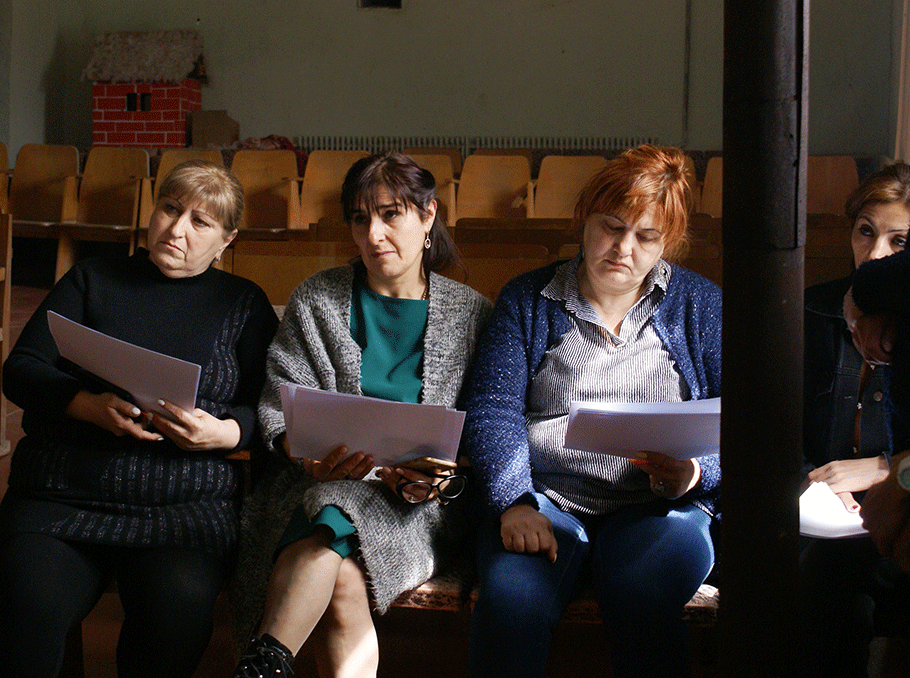 In the hall of Harav village
In the hall of Harav village
In the morning we are already in Harav village of Askeran region. In the village hall my friends from “Border” present their assistance program for family businesses. Surprisingly, most of the attendees are women, active and initiative.
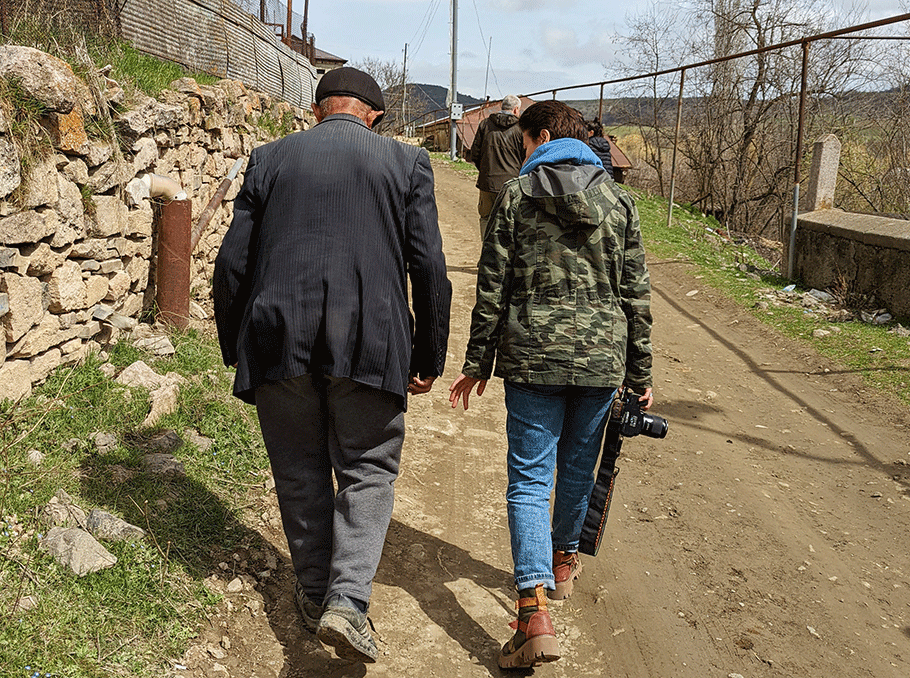 84-year-old man from Harav
84-year-old man from Harav
We leave the hall, 84-year-old man says: what business?! Solve this problem (Azerbaijanis). I smile to the old man․
“Right, you are not the one who can solve that problem,” he says with a sigh. I am taking photos of the Artsakh flag – symbol of our Armenian presence – waving on the building of village administration.
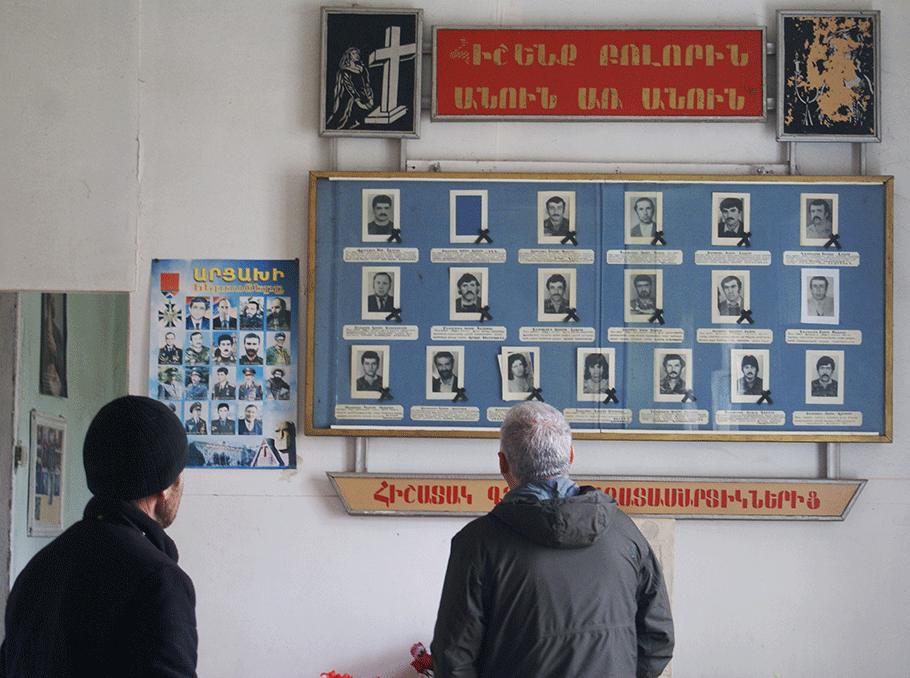 In Harav village
In Harav village
The next stop is in the village of Myurishen in Martuni. We are here to visit the houses of people who have already applied for the program. The first thing that catches my attention is the laundry with baby and adults’ clothes: we are here and we live.
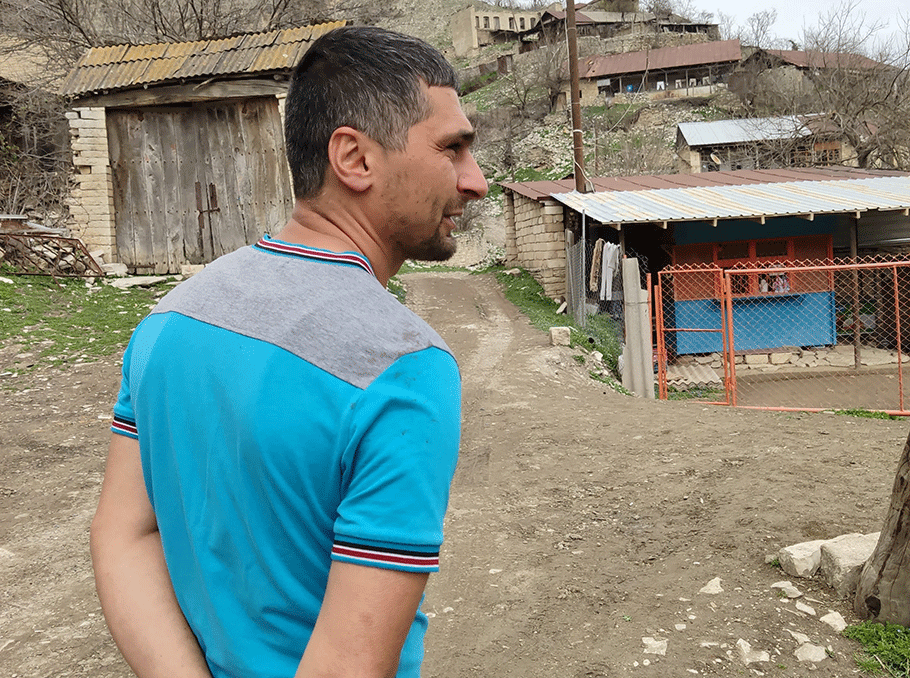 Sasun – military head of Myurishen
Sasun – military head of Myurishen
“No one has left the village after the war,” Sasun, military head of the school, says without unnecessary pathos. The wall of a 100-year-old school built in 1928 already has a crack, a new one was to be built but the war hindered it. But they will still build it…
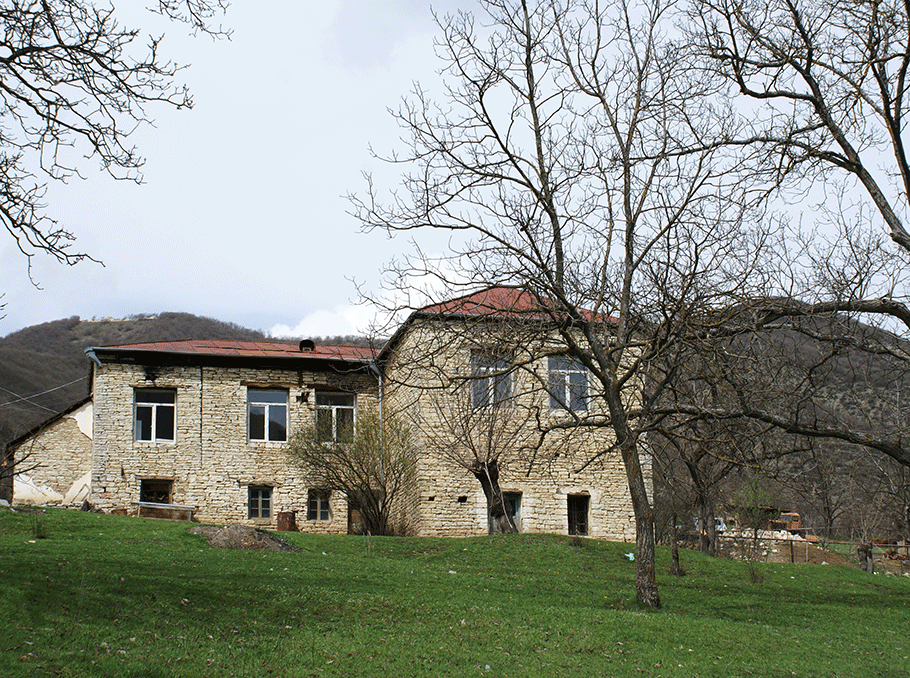 Myurishen school
Myurishen school
The soil calls and I kneel, slide my hand over the spring flowers, swallow the air insatiably and for a moment I feel like being in a fairy tale, and my only wish is not to get out of it…
“We will defend our village, our families,” says Sasun, when my half-smiling gaze focuses on a real weapon placed on the toys.
“I know,” I reply.
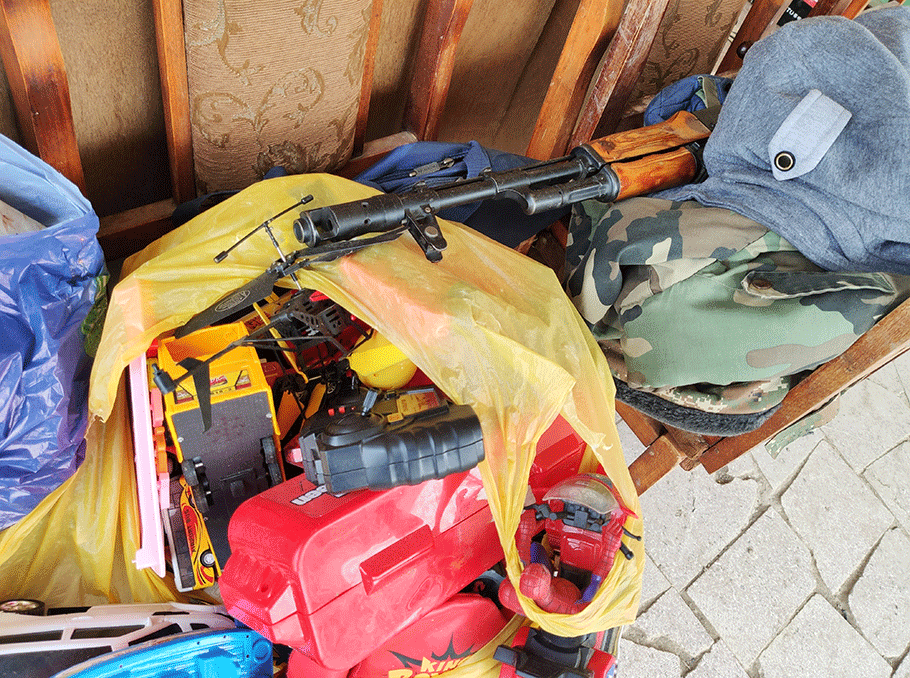
From the hill of the church built in the village in 1869 you can clearly see the enemy’s positions. They are on the hills surrounding the village, while below the conversation about a new life is boiling with Grigory, who is ready to start a business in the village surrounded by the enemy, who seems to want to get married but, as you know one of the widely spread justifications among unmarried boys – “there is no girl”.
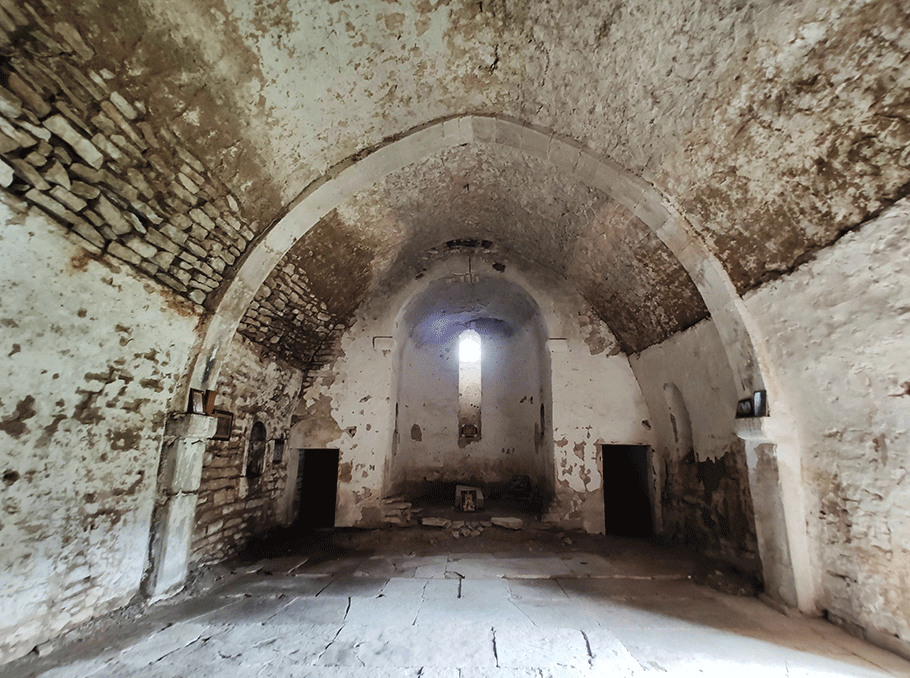 Myurishen church
Myurishen church
“Besides, who will come to our village?” Grigory says.
“You do not advertise yourself and the village well enough, you must persuade and bring,” we joke.
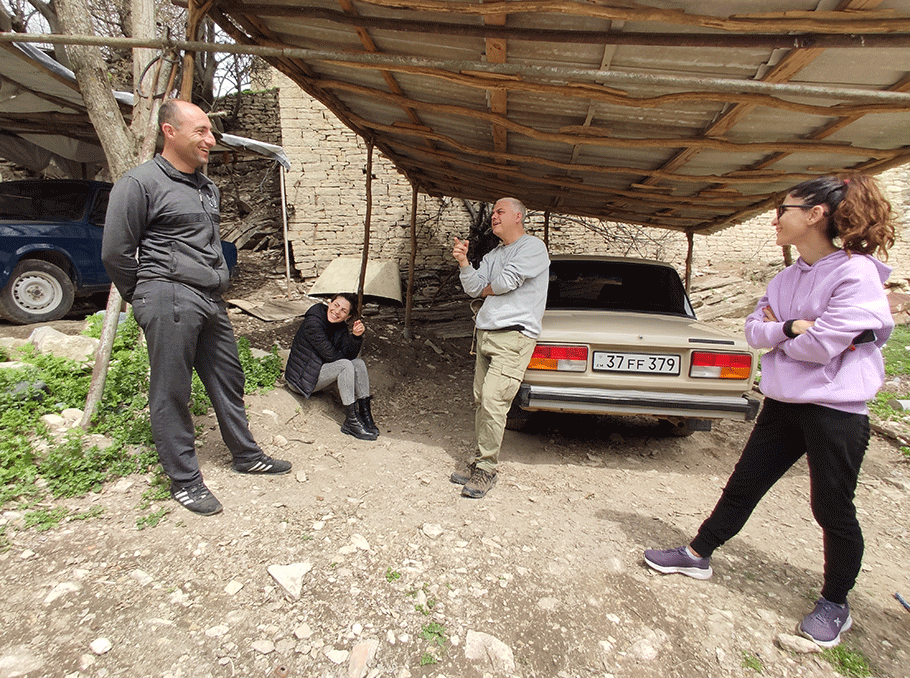
The Azerbaijani positions are clearly visible in the neighboring village of Avdur as well. You walk on the road to the village, and they are directly in front of you, above you, next to you, but the locals keep bees and animals, cultivate garden. People live...
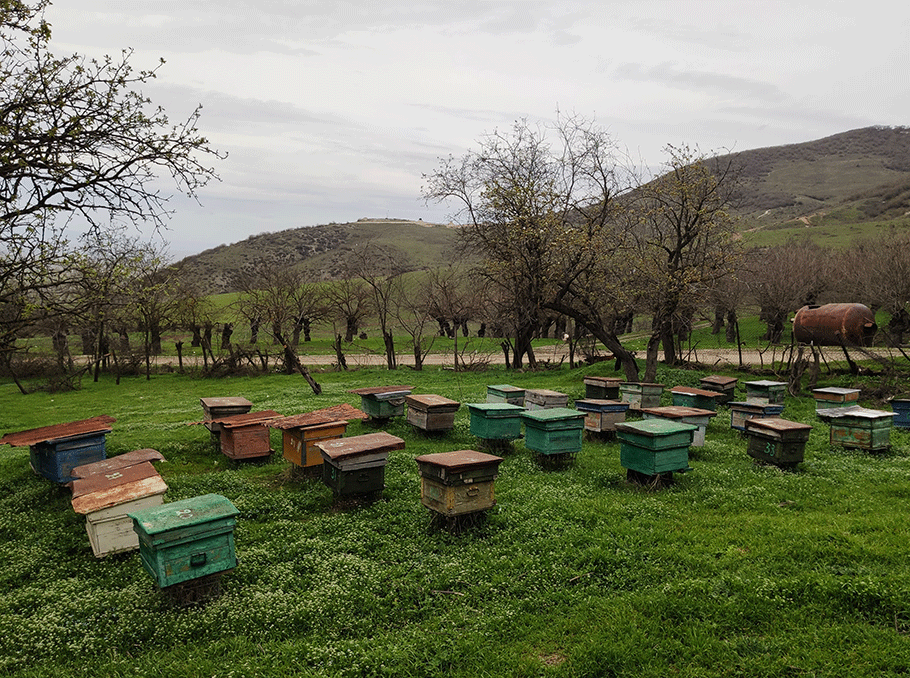 Avdur – Azerbaijani positions seen above
Avdur – Azerbaijani positions seen above
Between the centuries-old mulberries reminding a forest path, we reach a fairy tale area, where Grigory, from Hats community, laid the foundations of his greenhouse in front of the enemy positions.
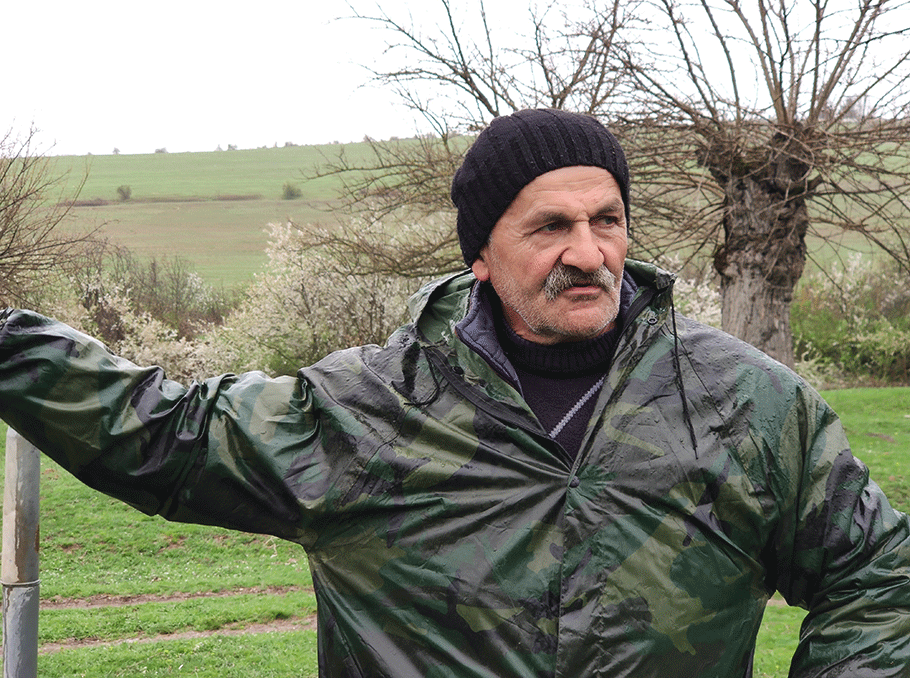 Grigory from Hats community
Grigory from Hats community
To “fence” the area, he used artillery shells he had collected since the 90s. Sponsored by the program he built this greenhouse and left a same-size territory next to it to build another one. Grigory is a fantastic character, powerful, hard-working, not to mention what energy he has! “Next time I will come especially to have a long talk with Grigory and write a story about him,” I think.
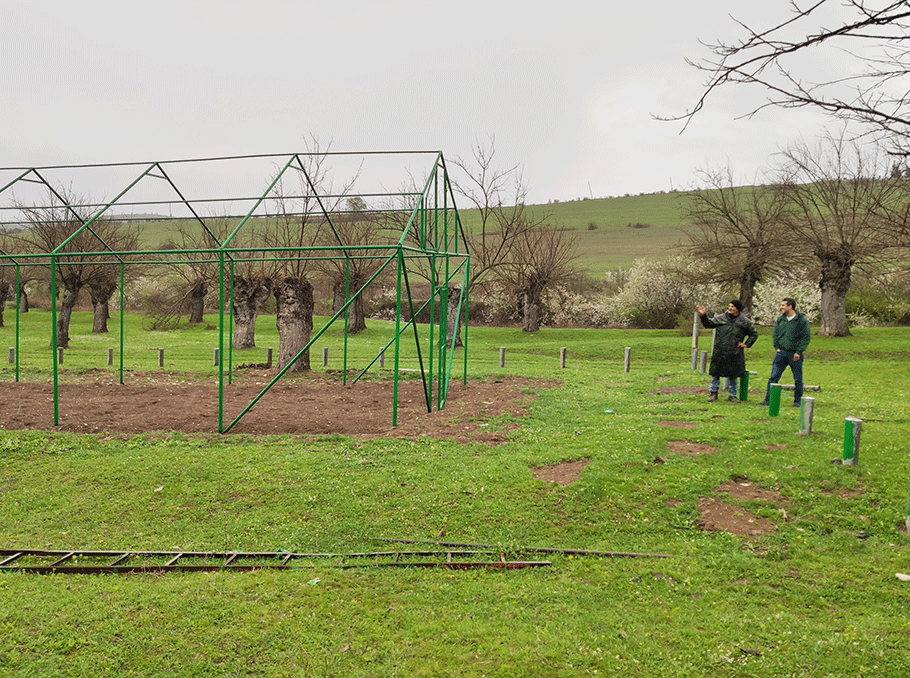 Grigory’s future greenhouse
Grigory’s future greenhouse
I am in a good mood inspired by the strong and creative people of Artsakh. I am surrounded by the wonderful nature of Artsakh, and the weather is on my side – a little wet and clean! “You love the homeland by knowing it,” I repeat in my mind and count how many days of my vacation I will spend in Artsakh.
The men walking around with guns in Taghavard push me out of the fairy tale again. The village was divided after the war. Positions are deployed on the road, and, we can say, the Azerbaijanis are in the village. This is how I imagined the 90s. Time is running, and in this “developed and bright” world, people have to carry weapons around their wives and children, to live, because the world does not care if the enemy – used to commit any atrocity – enters their houses. I am talking to a man with a rifle on his shoulder, he has been waiting for information from his missing son for over a year and a half…
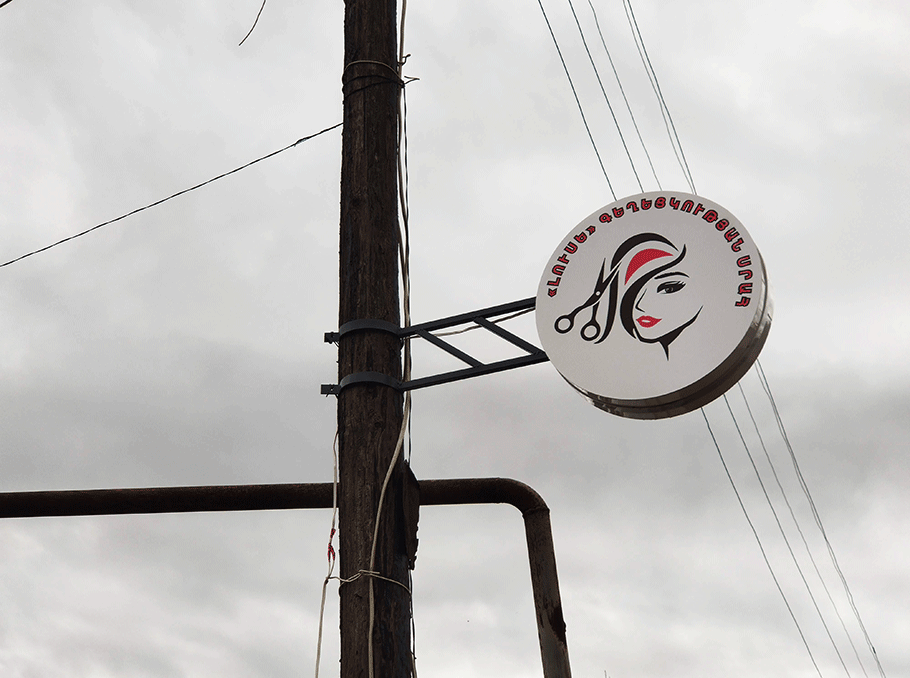 Lusine’s Beauty salon
Lusine’s Beauty salon
And in this reality there is a girl with a sunny smile – Lusine – who opened her beauty salon (with “Border” NGO’s program) and styles the hair of the village girls. Lusine’s husband’s name is Artsakh. Isn’t it symbolizing? Artsakh married, built his life and now prepares to give new generation, stay and live in this corner of Artsakh world where the enemy turns on threatening recordings every day and “urges” to leave the village…
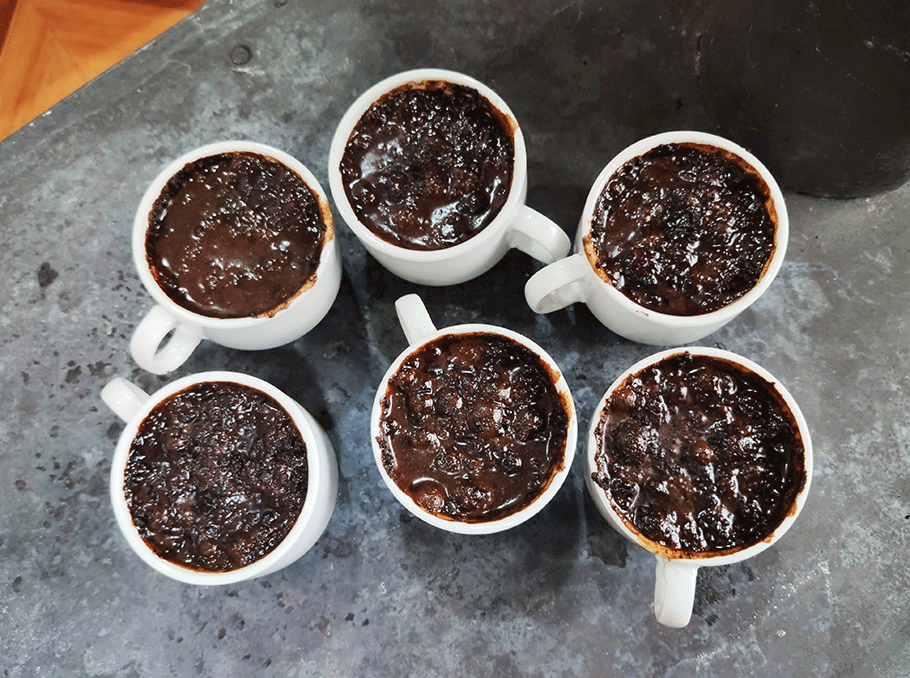
Together with them we enjoy the most delicious Artsakh coffee: I drink such coffee for the second time in my life. The first time it was here too.
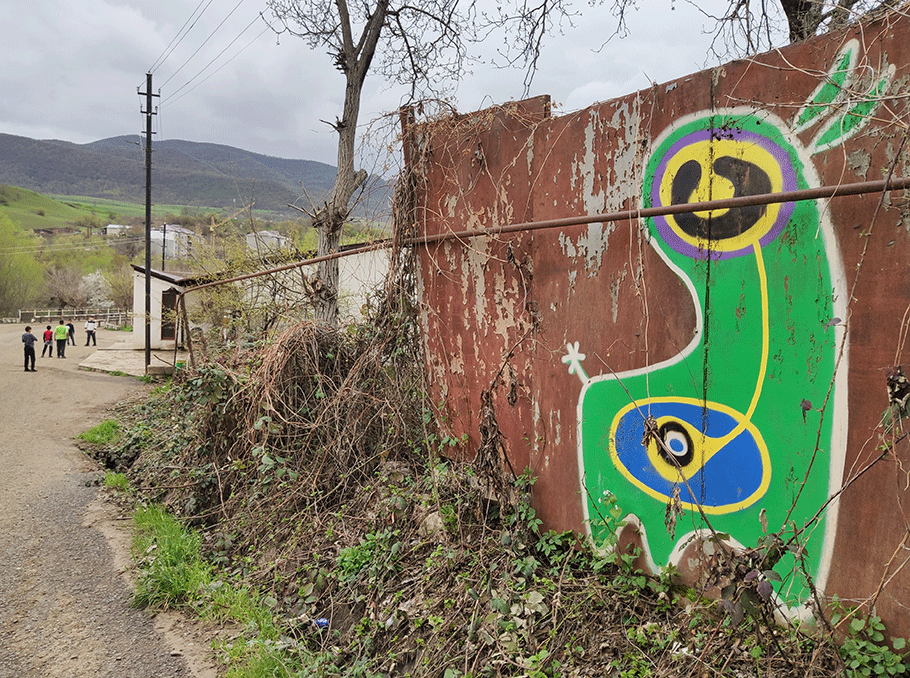 In Karmir Shuka
In Karmir Shuka
Karmir Shuka comes right after Taghavard. The children there are playing loudly. I want to join them. After hesitating a little, they let me join and play a ball with them.
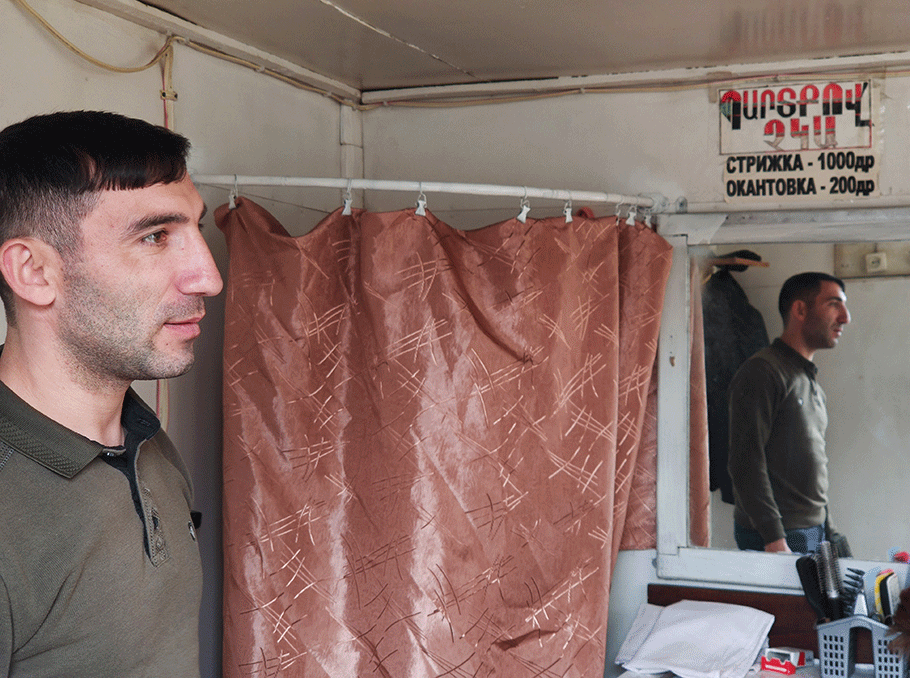 Barber’s shop in Karmir Shuka
Barber’s shop in Karmir Shuka
The boy, standing aside more proudly than the others, looks at me, then, seeing that I easily dodge the ball, takes it in his hand combat-ready… My friends call me and with a victorious mood for not having been hit even once with the ball, I wish success to the bright ones.
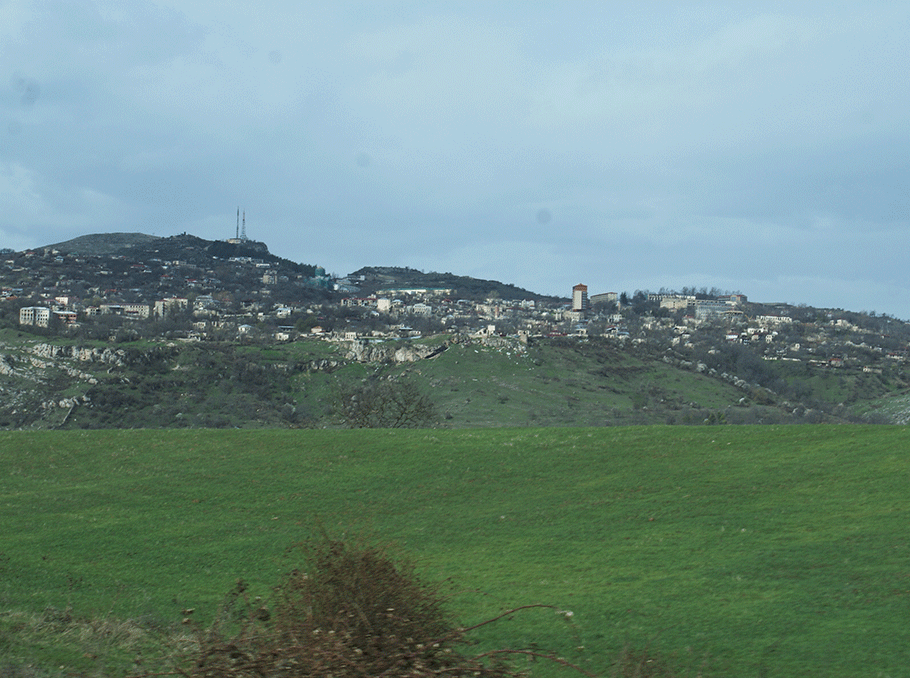 Shushi
Shushi
Azerbaijani flags are waving on the heights of the road connecting Karmir Shuka to Stepanakert. Shushi is visible in all its glory and inaccessible ... I want to convey the bitterness of the witness of this scene to each Armenian, wherever he/she lives. My mind is in the same direction. “You stand up for your homeland only by loving it”…
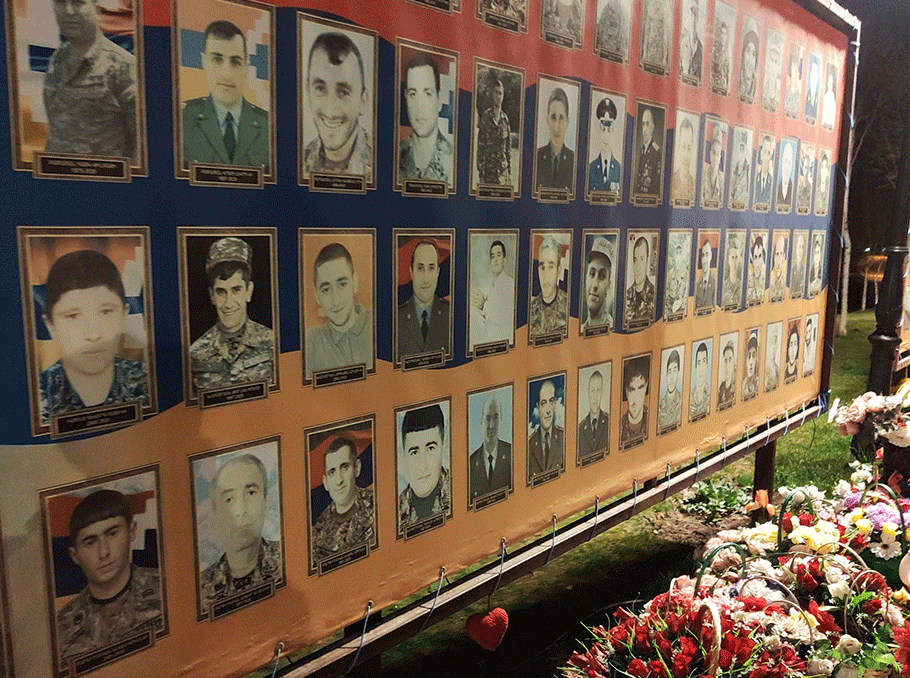
In the evening, Stepanakert is as calm and peaceful as before… No, it is not as before, but it is calm and silent, keeping in its heart the names of the dead boys and a reliable expectation for a dignified future.
Text and Photos by Ani Rapyan
















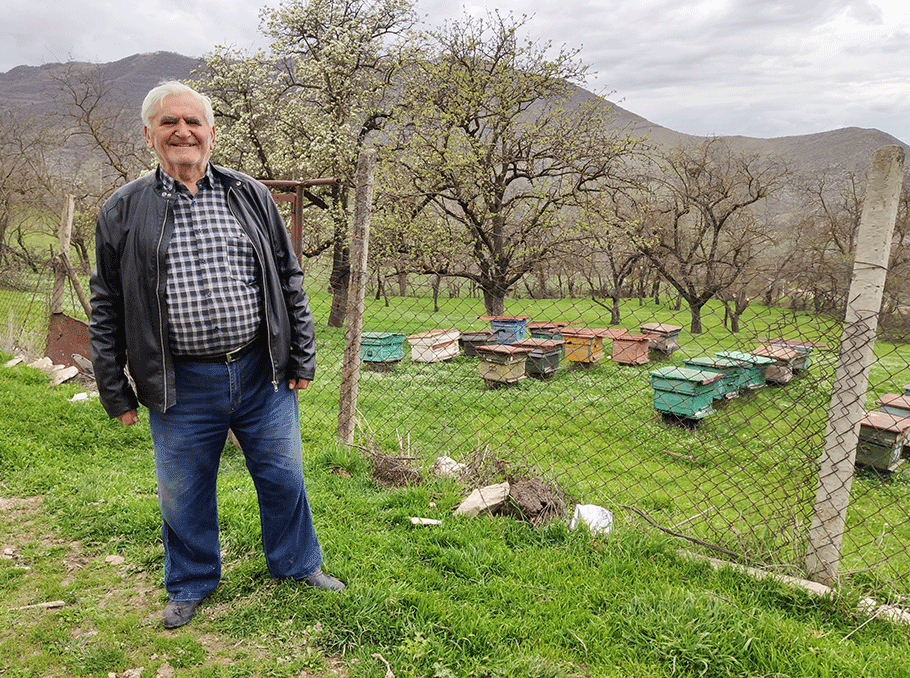
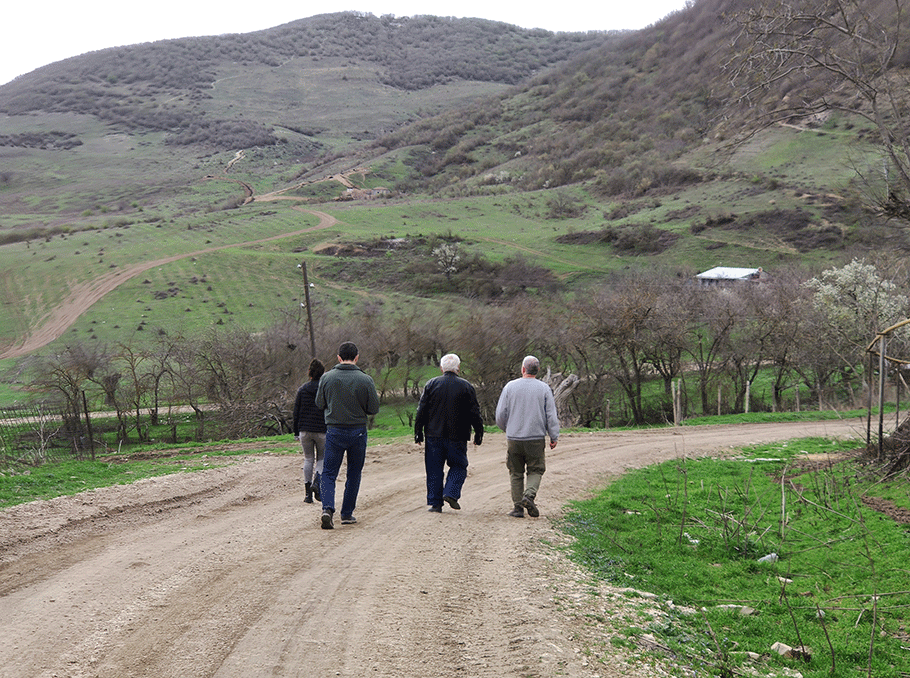
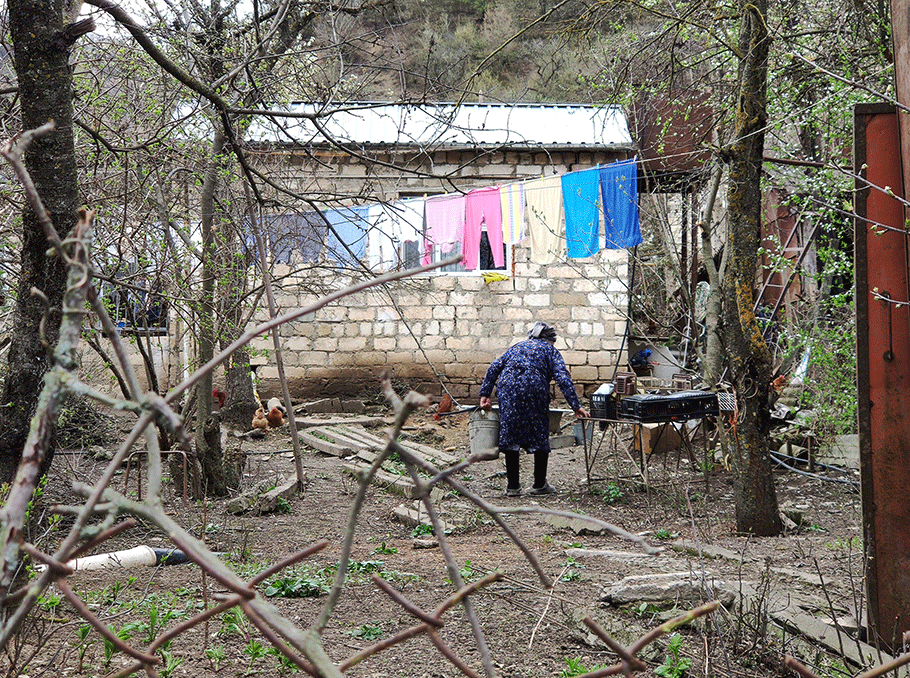
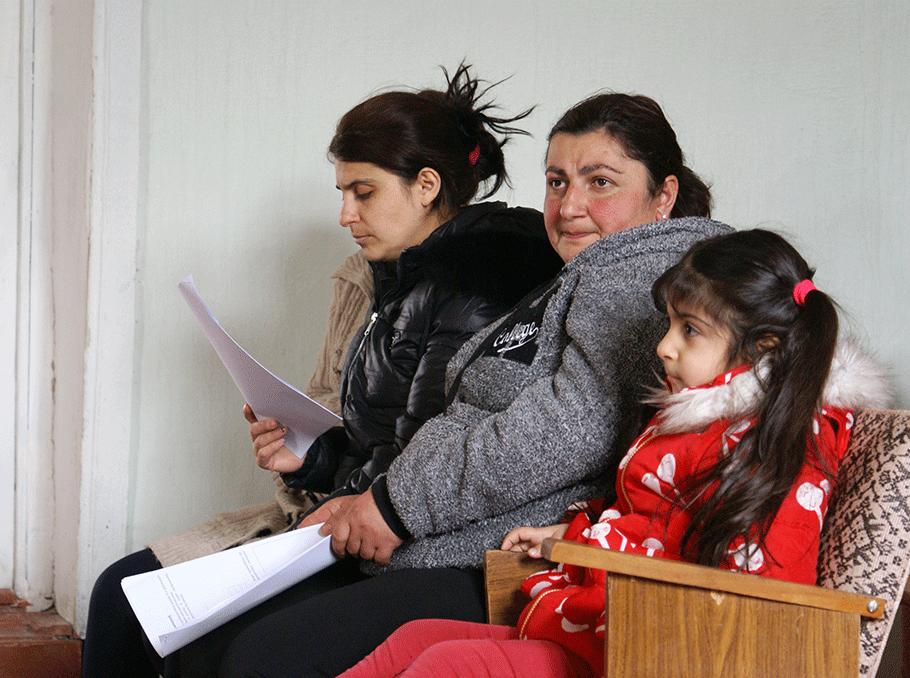
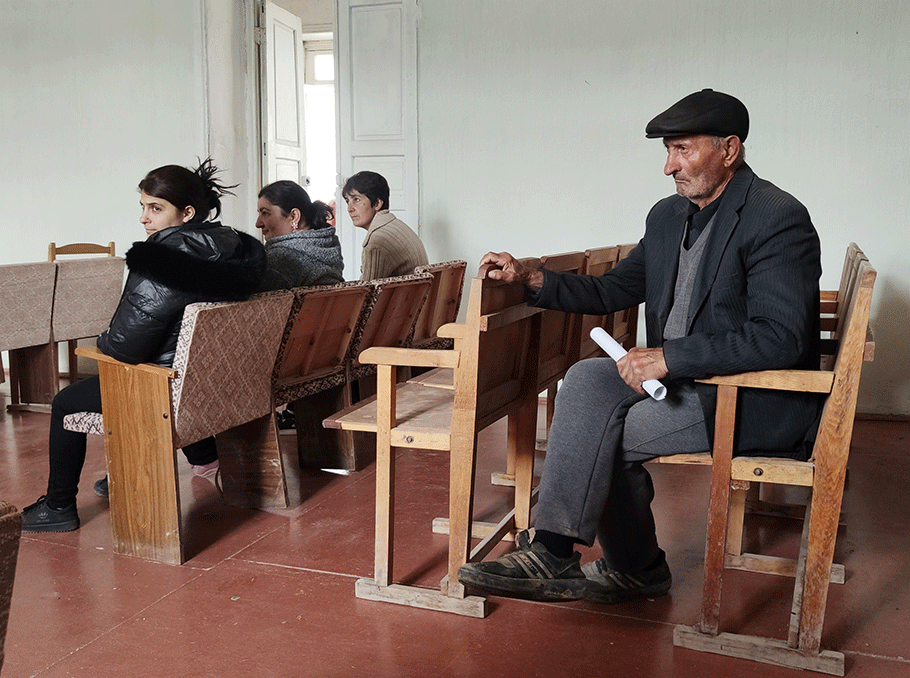
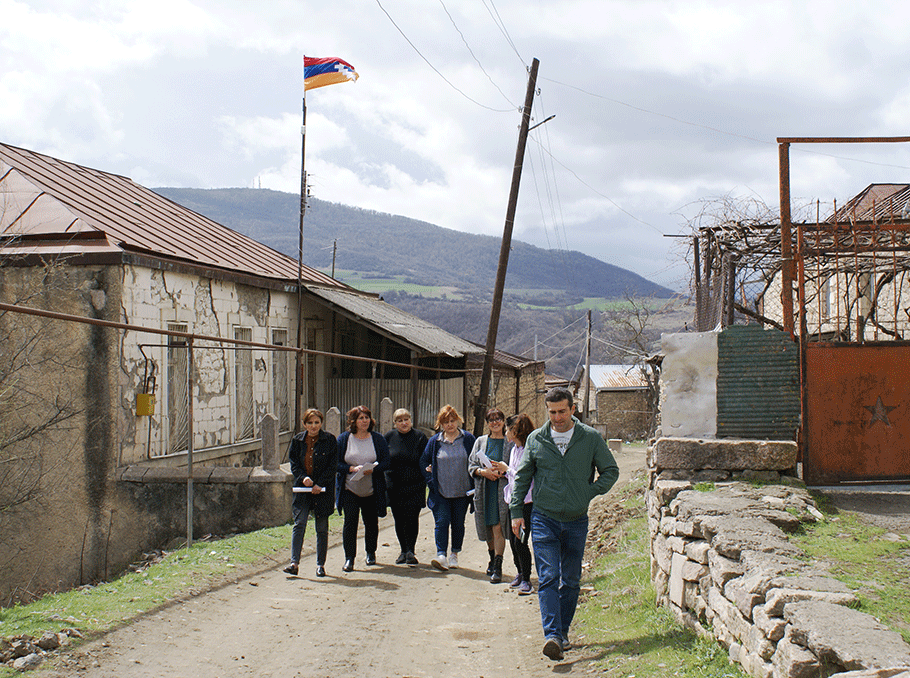
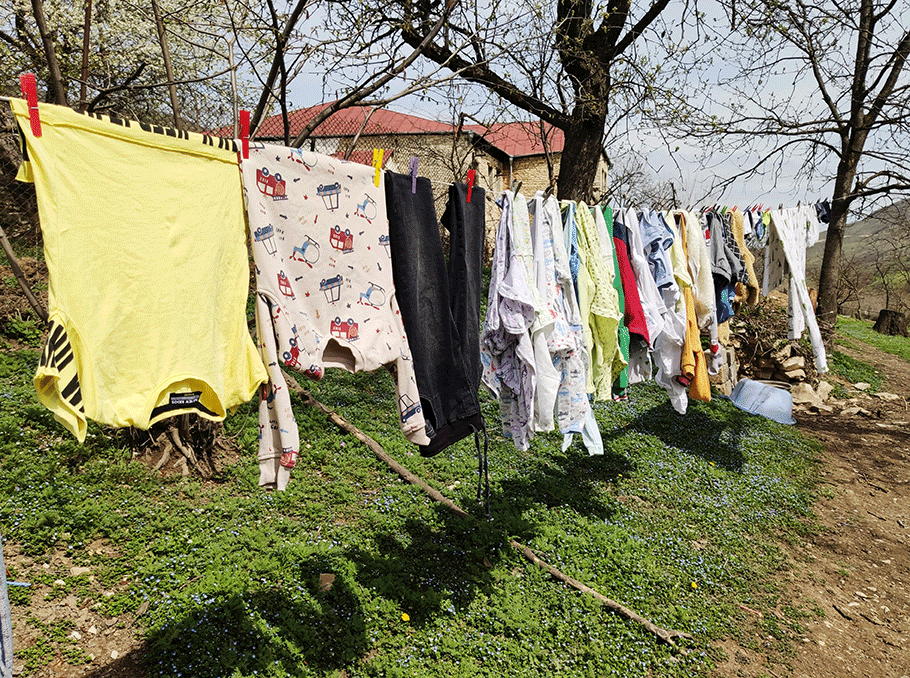
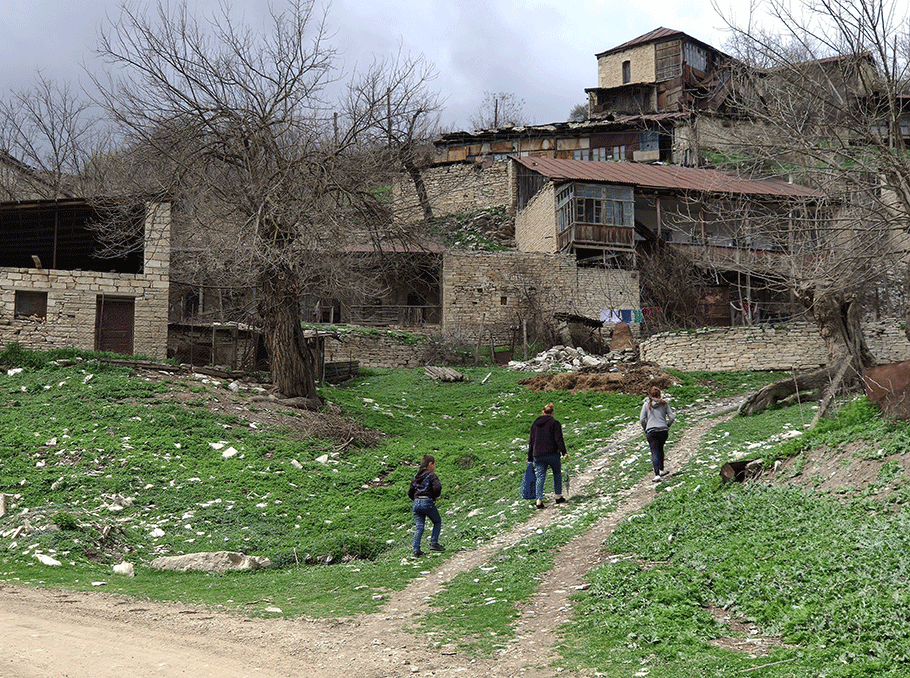
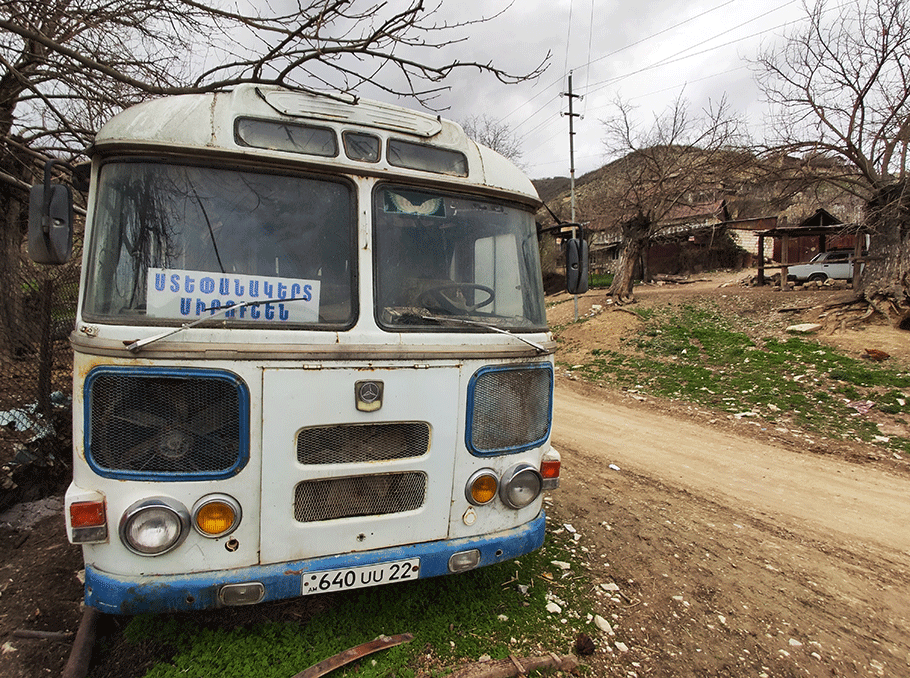
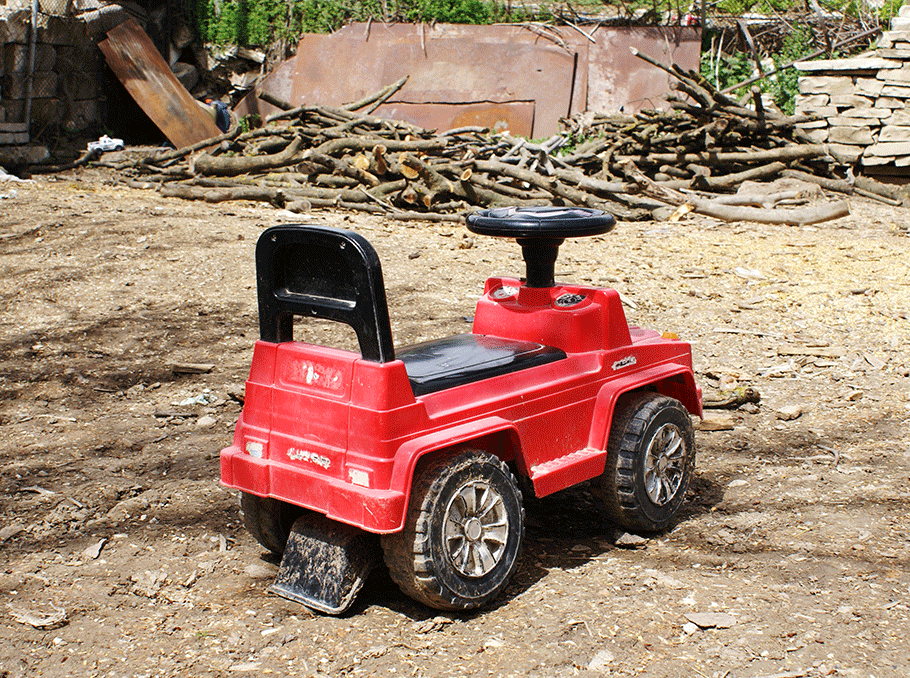
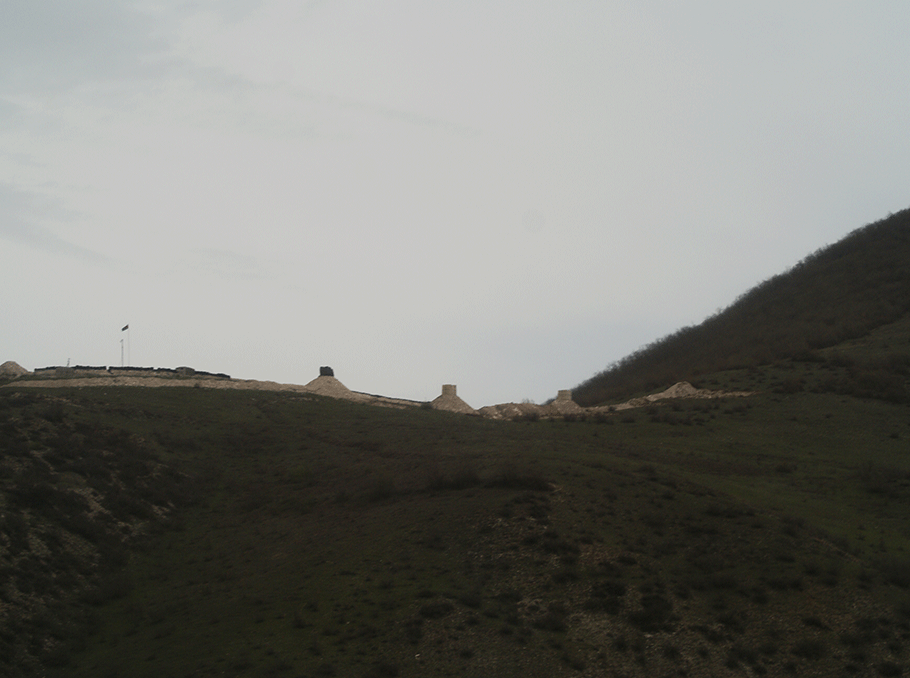
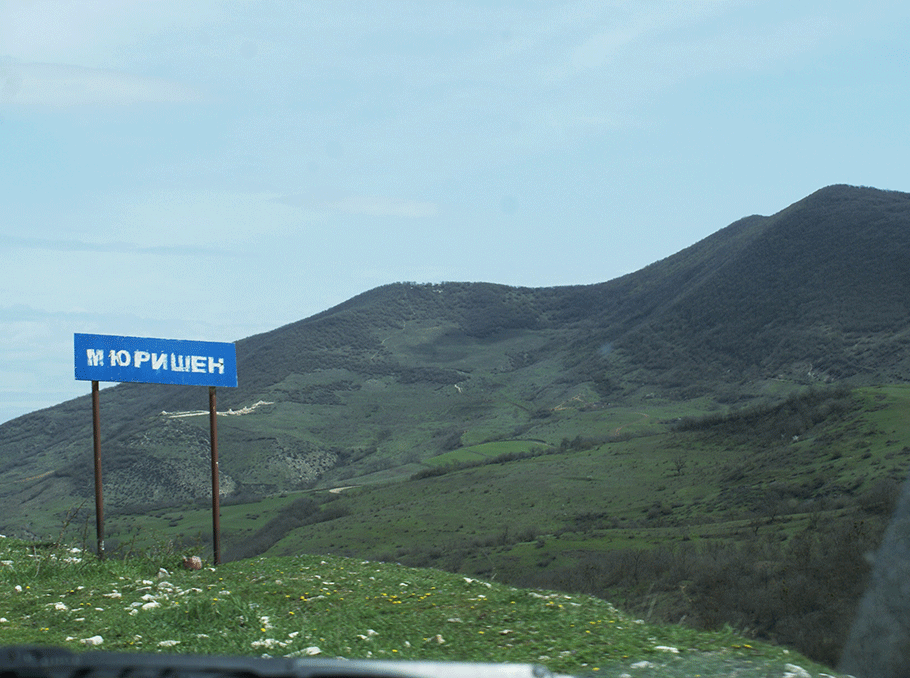

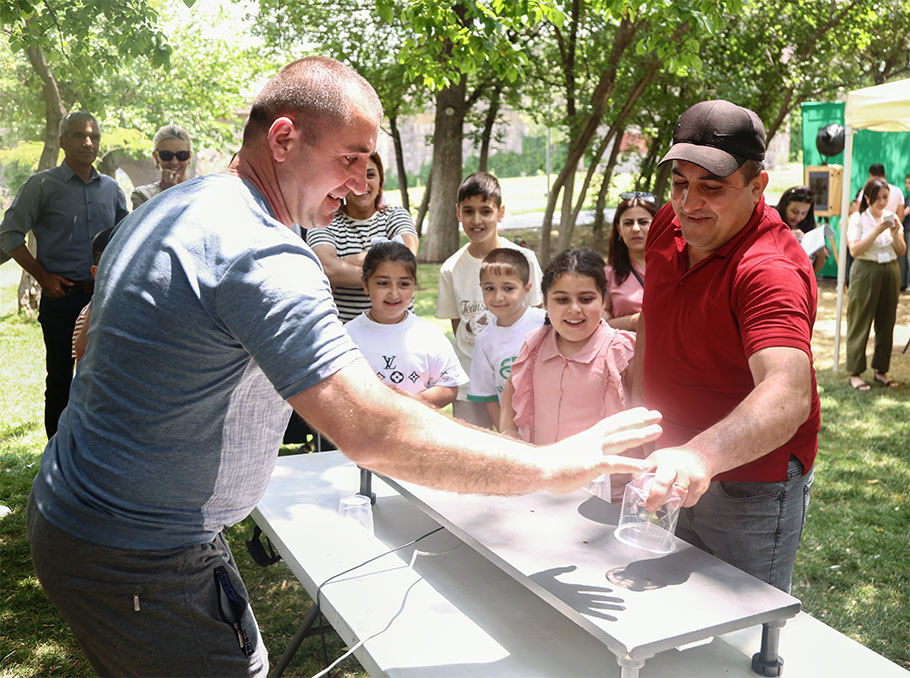
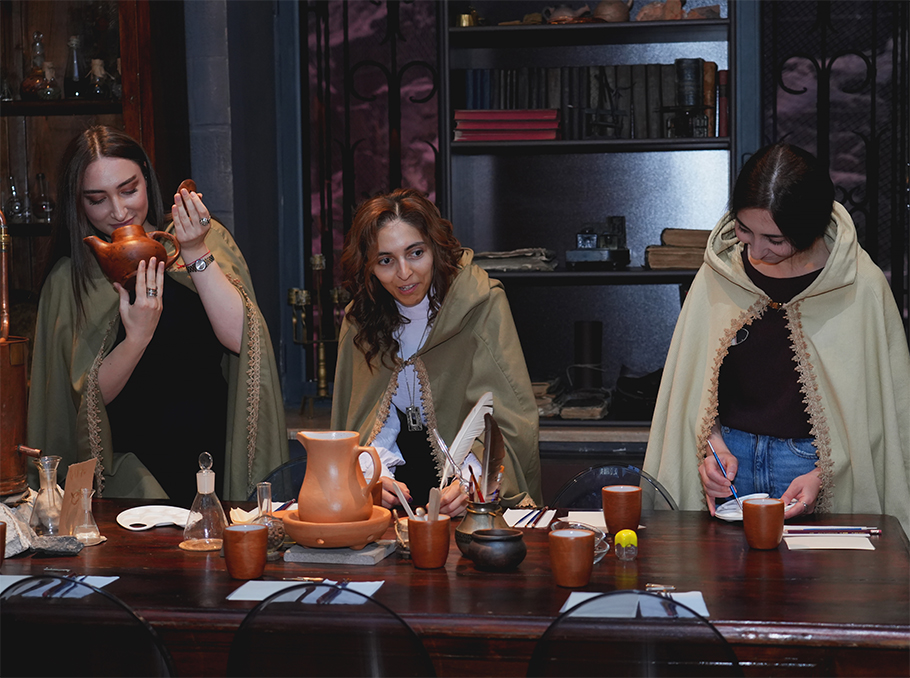
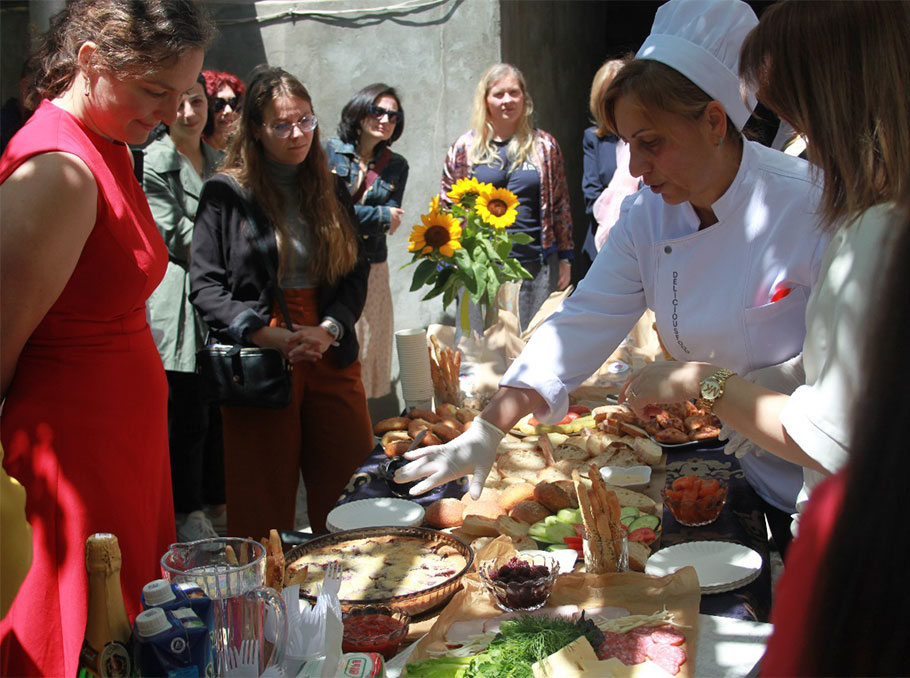
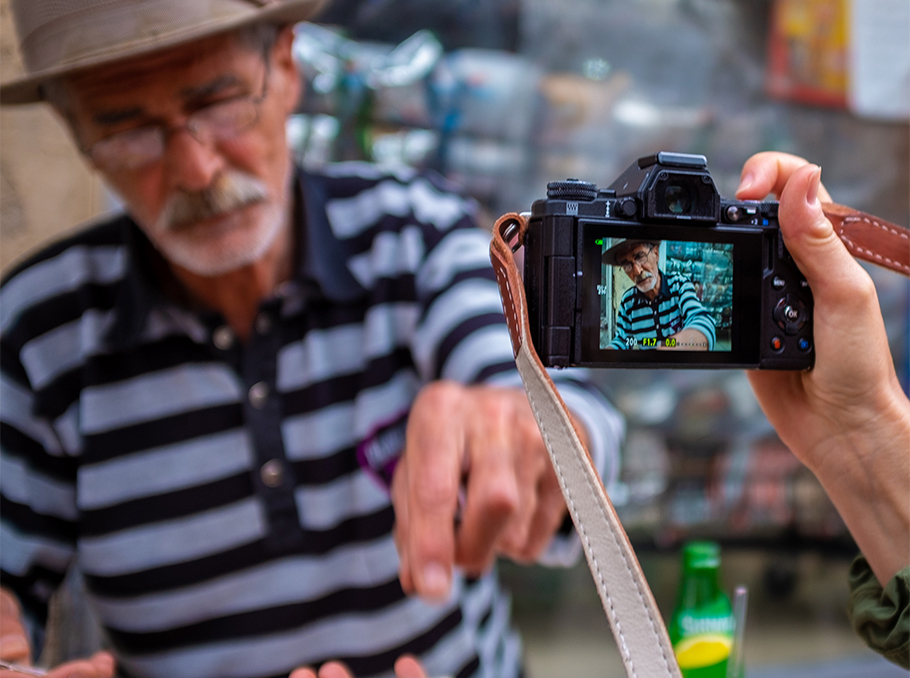
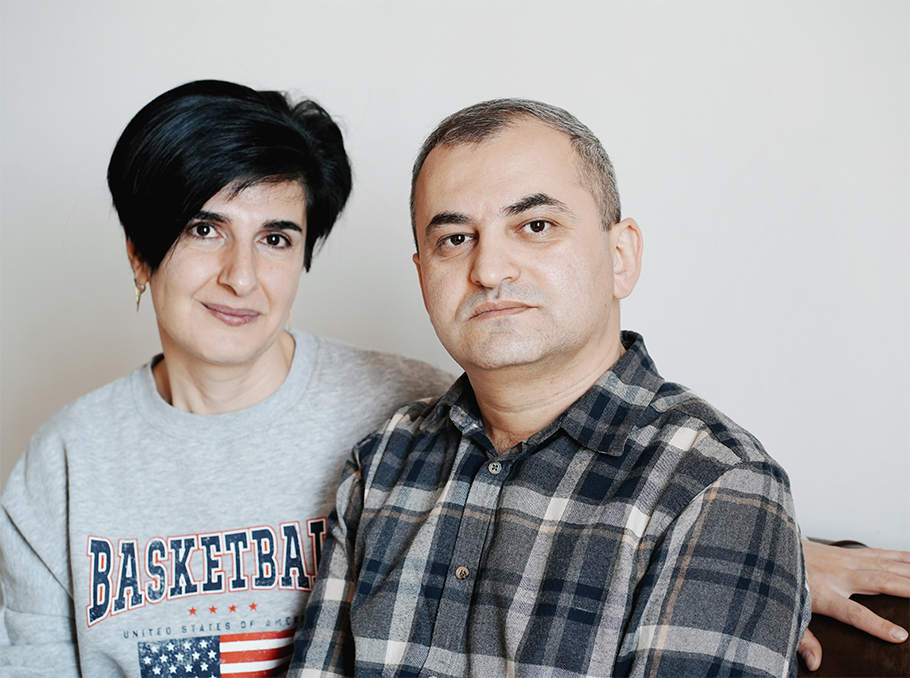







Comments
Dear visitors, You can place your opinion on the material using your Facebook account. Please, be polite and follow our simple rules: you are not allowed to make off - topic comments, place advertisements, use abusive and filthy language. The editorial staff reserves the right to moderate and delete comments in case of breach of the rules.